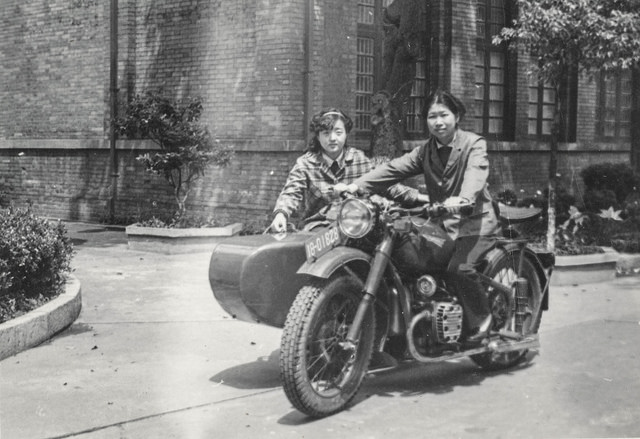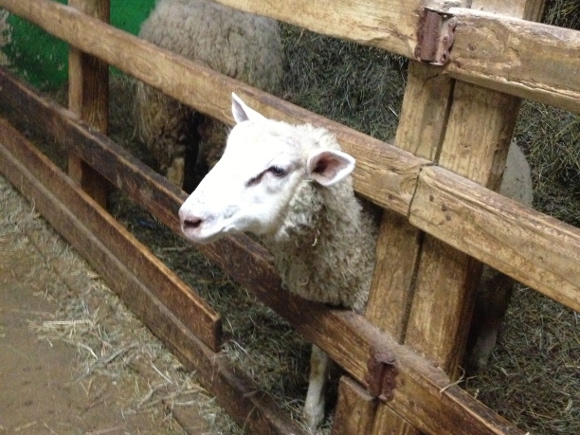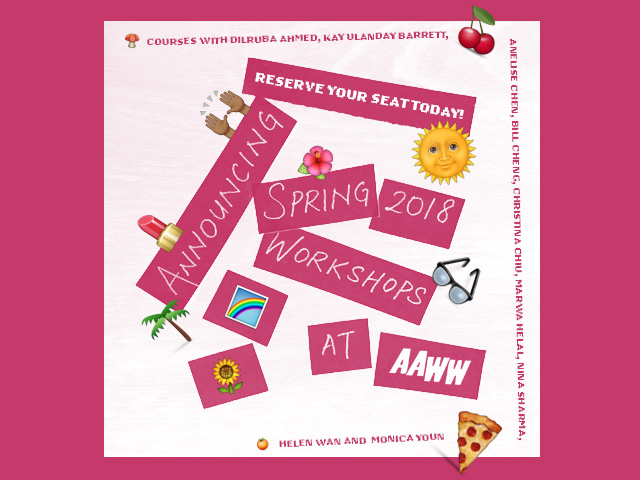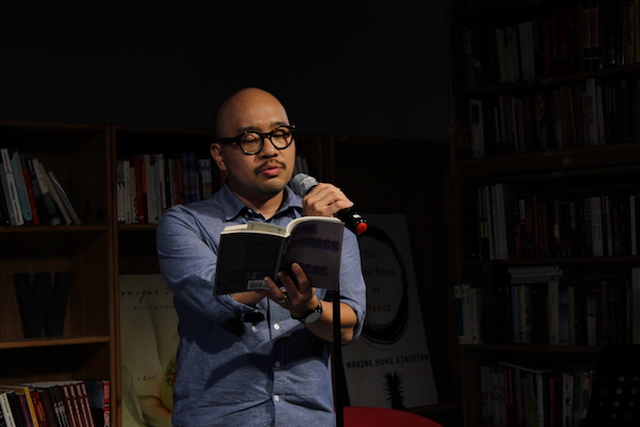The gentrification of punk, Anelise Chen on her grandmother’s ghost, Jonathan Saha on the dangers of excluding Rohingya Muslims from their own identity, and more.

September 29, 2017
Last week, our roundup links focused on the violences of both past and present to construct a free future, addressing critiques of progressive or “radical” art and literary worlds to make us reconsider that which is taken for granted. This week we’re focusing on the making and taking of spaces. Charse Yun writes on how the translation of a book removes the author’s place in writing it. Aviva Stahl writes about a Palestinian pastor looking to instill socialist values in New York City Council laws.
Khader El-Yateem Could Be the First Socialist Palestinian Pastor on the City Council by Aviva Stahl
Khader El-Yateem, a Palestinian-American pastor and socialist hopeful for the City Council seat for District 43, has accrued an amount of public support but it might not be enough against established local Democrat politicians.
“I came out of prison committed to issues of justice and reconciliation and dialogue,” he told me. Asked how he might address the racial tensions in his district, El-Yateem suggested opening a community center to engage people on social issues through art and performance.
Based on a True Story by Bryan Washington
When the autofiction is the default pigeonhole for writers of color, what is a writer of color to do about it? Bryan Washington speaks to different writers of color on how they’ve grappled with the assumption that all of their work is founded in autobiography.
The moniker of Great American Novelist almost always falls onto a white man, and while the plotlines that supposedly justify that label are generally more plausible than not (a novel in which a white guy reconciles his multiple marriages; a novel in which a white guy reconciles his sexual frustration; a novel in which a white guy takes a trip to a foreign country, where an illumination is made amidst cameos from the locals), it’s seldom that a direct line is drawn between those narratives and the author crafting the piece.
How the bestseller ‘The Vegetarian,’ translated from Han Kang’s original, caused an uproar in South Korea by Charse Yun
‘The Vegetarian’ didn’t reach acclaim in South Korea, but once translated to English, it took on new life—perhaps literally. With faulty translation, the English version is inconsistent to the original, which brings up the role of the translator in preserving the author’s original tone and intent, instead of making themselves the star of the show.
In an interview with Public Radio International’s “The World,” host Marco Werman bluntly asked Smith: “Do you think if it weren’t for you, Han Kang wouldn’t have won the Man Booker prize?” In the awkward pause that follows, you can sense Smith’s hesitancy. It’s an odd thing to ask: Obviously, without translation, nothing could be read, and hence, nothing judged. What the interviewer seems to be asking is: Was it mainly your exceptional translation skills that brought about this achievement?
“Don’t Be Afraid to Pogo!”: Chicana Hollywood Punks Negotiate ‘h/Home’ After Hardcore Takes L.A. by Marlen Ríos-Hernández
When the pogo was replaced by slamming in the mosh pit, so too were the key chicana players of punk as well as the original message being brought to the stage. The gentrification of the simple pogo into a more violent dance literally maneuvered the scene into something more male, and more exclusionary.
When did punk become white? Sound white? Sound male, even? The story of moshing–a dance where predominantly young men gather in a half circle aggressively pushing into each other –which is integral to how the history of punk is shaped, understood, and passed on, offers a window into investigating the outright erasure of Chicana punk from broader punk history which has generally centered cis-heterosexual men from either the U.K. or New York scenes.
Grandma Turned Me Into A Ghost by Anelise Chen
Anelise Chen’s grandmother told her she was going to see ghosts, but then she became one. As she later reflects on her grandmother’s struggles in navigating how to love.
My first worry was that if this ghost-seeing trait was in my ba zi, had I been seeing ghosts all along? How could I know? I summoned every piece of knowledge I had about ghosts—
It is a person, but see-through
It has a scary face
It is an orb of light that wears a white sheet with eye holes cut out of it
It goes “ooooohhh…ooooohhhh” in the wind
A Guide For Writing About Muslim Americans For The Struggling White Male Reporter Who Doesn’t Want Anyone To Know Muslims Make Him Nervous by Zahir Janmohamed
What do you do when you’re white, male, and so so sorry for being afraid? Zahir Janmohamed gives the lowdown on how to write about people in a way that both belittles their struggles and reveals a writer’s ineptitude to describe a person’s experience sans formulaic framing.
It sucks, I know. And it’s confusing. Sunnis? Shias? And what’s that? There are Ahmadis, too? Of course, it doesn’t help matters that Kumail Nanjiani is being so damn unhelpful by not responding to the questions you tweeted at him about Islam.
The Limits to History by Jonathan Saha
Rohingya Muslims are not only being denied aid, but because of the pedantic intellectualization of their plight, the rest of the world is focusing more on if they are an ethnic group or aren’t instead of helping people self-determinate.
Just because there is limited historical evidence of Muslims in this corner of the Bay of Bengal referring to themselves as Rohingya, this does not mean that there was not a form of ethnic identification that could be traced back to earlier periods if (and it’s a big if) we could know how this population self-identified. But can we know this? What records would have been left that could evidence how these populations would have seen themselves? We might even ask, if such records were produced, would we be able to fully understand them on the same terms as those past peoples?



